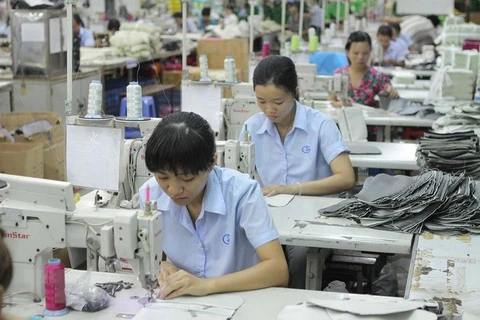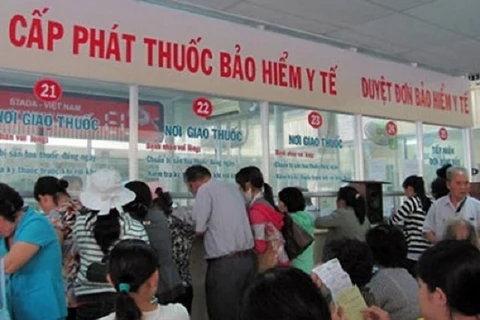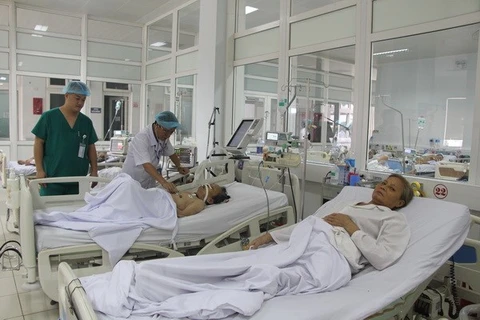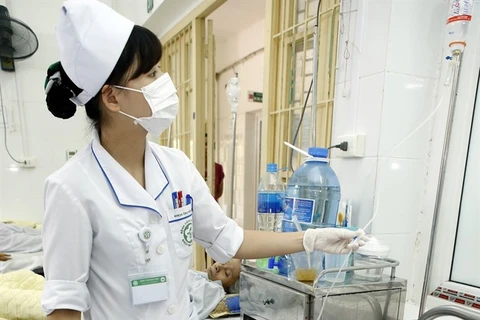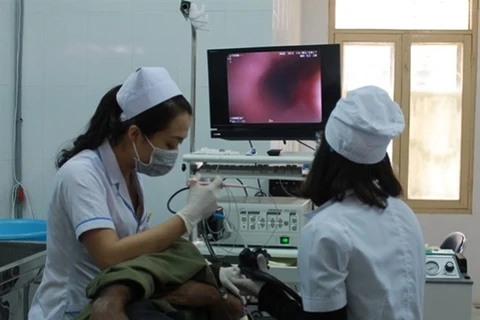 Deputy Ambassador of Denmark Louise Holmsgaard (L) and VSS Deputy General Director Dao Viet Anh sign the MoU on August 21 (Photo: baohiemxahoi.gov.vn)
Deputy Ambassador of Denmark Louise Holmsgaard (L) and VSS Deputy General Director Dao Viet Anh sign the MoU on August 21 (Photo: baohiemxahoi.gov.vn) Hanoi (VNA) – The Vietnam Social Security (VSS) and the Danish Embassy on August 21 signed a memorandum of understanding (MoU) to help the VSS improve its health insurance verification staff’s capacity in 2018 and 2019.
Under the document, the Danish Embassy will organise training courses in Vietnam and fund short-term courses in Denmark for VSS staff. It will help the VSS take part in international seminars and expand cooperation in various fields.
Deputy Ambassador of Denmark in Vietnam Louise Holmsgaard said health care is one of the top priorities in the two countries’ development cooperation. She lauded the VSS’s achievements in patient information management and health insurance coverage, adding that health insurance is crucial to promoting primary health care.
The MoU will be an important stride to help improve the capacity of the VSS’s health insurance verification specialists, enhancing the management of the health insurance fund, she noted.
VSS Deputy General Director Dao Viet Anh said health insurance has covered about 84.5 million people or more than 87 percent of Vietnam’s population, and this coverage is almost 100 percent among students.
However, there remain challenges such as low insurance premiums and high medical service prices. Therefore, he hoped that the cooperation with the Danish Embassy will help the VSS learn other countries’ experience in the insurance fund management and insurance verification, address difficulties, develop health insurance sustainably and expand partnerships to other areas.-VNA
VNA
